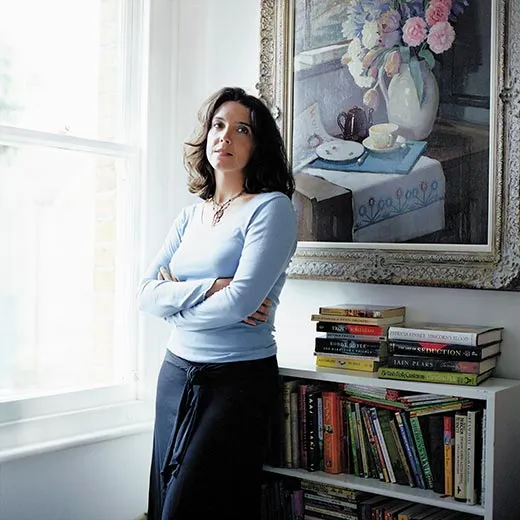Bettany Hughes on Socrates
The biographer and author of a new book discusses what new there is to learn about the ancient Greek philosopher
/https://tf-cmsv2-smithsonianmag-media.s3.amazonaws.com/filer/Interview-Bettany-Hughes-631.jpg)
Sure, Socrates was one of the founders of Western philosophy, but what was he really like? The 42-year-old British historian Bettany Hughes, whose previous biography dealt with Helen of Troy, brings him to life 25 centuries after his death in The Hemlock Cup: Socrates, Athens and the Search for the Good Life. She spoke with the magazine’s Megan Gambino.
Why Socrates?
We think the way we do partly because Socrates thought the way he did. His basic idea—that the unexamined life is not worth living—is what it means to live in the modern world, to develop ideas and ask questions. Yet people imagine Socrates as this rather lofty graybeard dressed in a toga. He lived a very vigorous, quite gritty life.
How did you go about piecing together his life story?
I cannot write history unless I travel to the places where it happened. I spent a lot of time walking around the Eastern Mediterranean, going to all the shrines that Socrates would have worshiped at, going to all the battlefields that he fought on. Socrates was a great walker. They say he was a fiend for exercise. He was absolutely not shut away in some ivory tower somewhere.
What’s the most important thing to know about him?
He really challenged the status quo, and he was very brave in doing that. He was an activist in some ways, a philosophical activist.
What surprised you the most?
How much of his life he spent as a soldier. He would have seen appalling scenes in battle, and yet right until the end of his life he was still searching for the good. That was probably the most poignant thing for me.
How can we benefit from knowing more about him?
The value of wisdom. Socrates is fantastic at saying, “Look, I’m not saying that material comfort isn’t important. I’m not saying it’s not important to make beautiful statues and to have fine battleships and city walls. But none of this matters unless the people inside those city walls are happy.”
How did you end up feeling about him?
He could be infuriating. I’m sure if you went to a dinner party with him, he’d sit there and pick holes in your arguments. He would nail you. I’m sure he was quite an awkward person, but he was also electrifying. He was famously ugly. He didn’t fit in with what a beautiful, heroic Greek should be. He was the opposite of those things and yet everybody around him adored him.
What was the strangest thing you did to try to conjure up his world?
I ground up hemlock in a pestle and mortar. In Socrates’ day this was a new form of poison and capital punishment. I did that at home in my kitchen.
Is there a question you couldn’t get to the bottom of?
The key question is whether he was happy to die the way he did. Socrates was tried in a religious court. He was condemned for disregarding Athens’ gods. If you look at the way he speaks at his trial, according to Plato, there seems to be a moment when he realizes this isn’t just a game. I would love to know if he did die with equanimity, which is the picture we are given of him, or whether he thought he had a few more years of philosophizing in him and wished there hadn’t been that judgment for death.
/https://tf-cmsv2-smithsonianmag-media.s3.amazonaws.com/accounts/headshot/megan.png)

/https://tf-cmsv2-smithsonianmag-media.s3.amazonaws.com/accounts/headshot/megan.png)